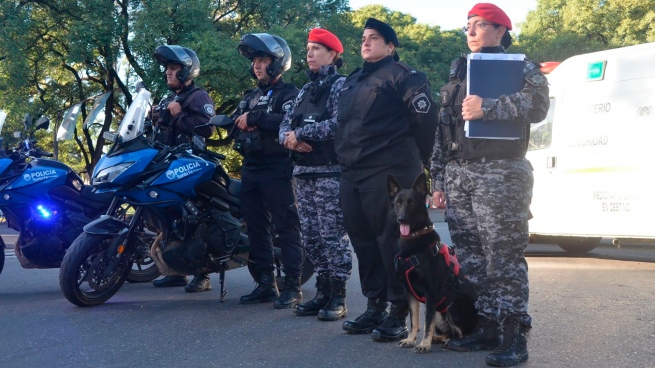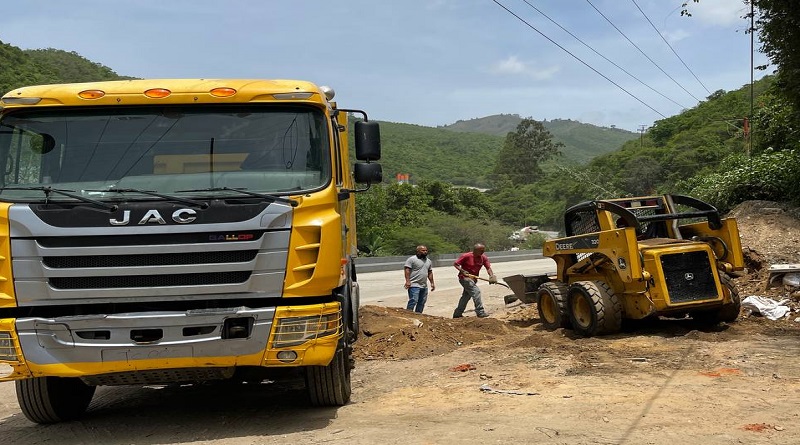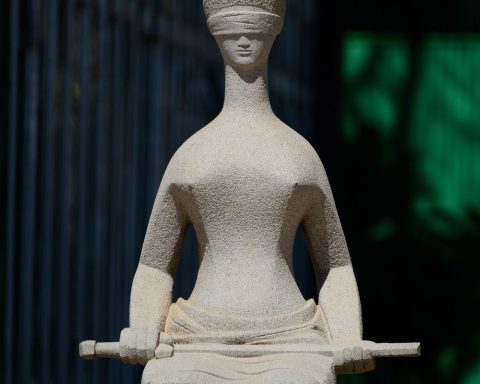More than a third of the policewomen in the province of Santa Fe suffered sexual harassment within the institution and 80% of them suffered from a superior, while more than half were victims of labor abuse, revealed a report on the role of women in the public security institution.
These are some of the conclusions of a qualitative research work with personal interviews with 95 policewomen from various hierarchies and cities of Santa Fe, in order to plan public policies that guarantee equal rights.
The study also shows “a strong reproduction of a traditional pattern with an overrepresentation in administrative tasks” of women within the force, as well as the difficulties still present in reconciling motherhood and working hours.
The Undersecretary of Welfare and Gender of the Ministry of Security, Natacha Guala, told Télam that the study “records a series of obstacles on which we must continue working, which we are addressing from the Ministry.”
-
Attention, containment and advice in situations of gender violence
- By free call 24 hours Line 144
- By WhatsApp +5491127716463
- By mail to [email protected]
- Downloading the apps
“Undoubtedly there is a long way to gobecause (changes) also depend on a deep cultural and institutional transformation, which have to do with the problems linked to workplace harassment and gender violence in the workplace”he added.
According to the report, entitled “Trajectory and Labor Roles of the Policewomen of the Province of Santa Fe” carried out together with the Crime and Society Program of the Universidad Nacional del Litoral, in relation to the problem of sexual harassment “4 out of 10 women The police maintained that it is a widespread phenomenon in the Santa Fe police”.
“In terms of experiences, more than a third of policewomen said they had been victims of sexual harassment in the police institution at least once throughout their career,” and 8 out of 10 who suffered from this situation “indicated that the protagonists were their hierarchical superiors.”
For Guala, “there are some institutional characteristics of the police that we can identify as favoring the naturalization of this type of practice and making actions against it unfeasible.”
??✈️ The province presented a report on the role of policewomen in Santa Fe
?? News link: https://t.co/ENQTcY3yIv pic.twitter.com/iSY5WsXVCC
— Santa Fe Ministry of Security (@MinSegSF) May 20, 2022
Among them, he noted “the very masculine institutional culture” of a force that “was inhabited mainly by men and continues to be.”
Also the existence of certain practices in the exercise of authority, which in some cases favor this type of abuse of power, when that hierarchy is played that way, and the naturalization of those situations”.
In fact, according to the survey, only 12% said they had formally reported the harassment, while the rest sought “informal” channels to put an end to the situation.
“That is why we focus on creating safe, reliable and confidential circuits so that women can first say so and ask for help in the face of it, and receive the support and advice they need,” she assured.
In this sense, he explained that “we created protocols that indicate mechanisms of action, the evaluation by a team of professionals and the follow-up of the accused”, which includes the removal of the weapon and its evaluation by a legal medicine team.
The work shows that policewomen are assigned, for the most part, to administrative tasks, since only a quarter of those interviewed are dedicated exclusively to tasks related to the security police.
Together with the Undersecretary of Welfare and Gender in the Police of the @MinSegSFwe carried out two workshops on good police practices with a gender and diversity perspective in Venado Tuerto. pic.twitter.com/Fww4IoiVtg
— Ministry of Equality, Gender and Diversity (@GeneroSantaFe) April 21, 2022
“There are some issues linked to the roles or tasks that end up being assigned to women, which perpetuate this idea that there are tasks that are for men and for women,” explained Guala, for whom a change implies “deeper transformations of the representations and gender stereotypes” that circulate in society.
Another fact that emerges from the study is the role of policewomen as responsible for the care of their children and the obstacle it poses in their professional role.
“Nearly 9 out of 10 interviewees said that it is difficult to articulate the demands of family life – with its overload of care tasks for women compared to men – with the demands of police work,” says the report.
“Maternity also appears and the incidence that it still has” as a stumbling block for the development of the professional career, “despite some measures we have taken such as the elimination of the pregnancy test for promotion contests and for admission” to the strength, Guala said.
The official pointed out that from the Security portfolio they work on measures such as “the possibility that both during pregnancy and in the postpartum period they are assigned to work destinations close to their home, to guarantee that they can reconcile breastfeeding with work.”


















